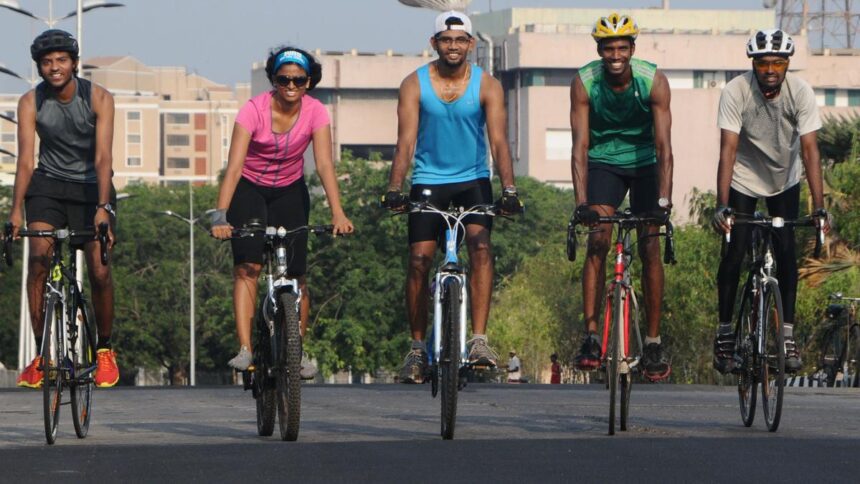The Bureau of Indian Standards (BIS) has introduced a new standard specifically for helmets used by cyclists, skateboarders, and roller skaters, designated as “IS 18808.” This initiative marks a significant step in promoting safety gear in a country where helmet usage for non-motorized vehicles remains voluntary, as bicycles do not fall under the Motor Vehicles Act.
G. Bhavani, senior director and head of the Chennai branch of BIS, announced that this standard was launched in 2025 with a focus on bicycle riders. In April, the Bureau held its first awareness workshop in Chennai and is actively engaging stakeholders, including cycling organizations such as WCCG – Chennai Cyclists, Cycling Yogis, and Chennai Runners.
“Through Manak Manthan, a monthly initiative of BIS, we address standards that have been newly revised or formulated. We connect with all stakeholders — consumers, manufacturers, regulators, and laboratories — for feedback,” Bhavani explained. Manufacturers of the helmets can apply for BIS certification associated with this new standard, and BIS is working to enhance awareness among relevant associations.
BIS certification signifies product quality assurance to consumers. Bhavani stated, “We grant certification after manufacturers meet specific criteria, allowing them to produce and market helmets with an ISI mark.”
In Chennai, cycling and running groups actively promote helmet use. Sudarsana Rao of Vibrant Velachery emphasized, “In all our group rides and events, our policy is clear: ‘no helmet, no ride.’” Rao expressed that a government mandate could improve adherence to helmet standards.
He noted, “Unlike motorcycle helmets, cycle helmets aren’t widely sold and can typically only be purchased in specialized shops.” Clubs like his play a vital role in advocating for helmet safety.
Most bicycle helmets are crafted from PVC, polystyrene, and similar materials, making them durable, lightweight, and reliable. Retailers indicate that many of the helmets sold are imported and adhere to strict safety standards, with prices starting around ₹3,500. Ashwin G., a partner at 5AM Bicycle Studio, remarked, “Manufacturing helmets for cyclists is a niche market, and demand needs to increase to attract more suppliers.”
Helmet manufacturers believe a market exists in India, given the growing cycling infrastructure and increasing awareness of this eco-friendly transportation mode. Bijoy Bharathan, general manager at Turtle Helmet, insisted, “We currently rely heavily on foreign market designs, which must change.” Bharathan also called on the government to reduce GST on safety gear, like helmets, to encourage purchase.
According to a World Health Organization report, quality helmets can reduce the risk of death by over six times and the risk of brain injury by up to 74%. However, affordability of helmets remains a significant barrier. The WHO’s toolkit on promoting cycling and walking stresses that effective helmet use requires legislation, public education, and enforced laws.
Globally, numerous countries have implemented mandatory helmet laws for cyclists, particularly children. Australia pioneered nationwide helmet regulations in the early 1990s, while Canada and Argentina enforce such laws in specific regions. The Netherlands mandates helmets only for e-bikes exceeding the 25 km speed limit. These policies form part of comprehensive road safety strategies aimed at reducing traffic-related injuries.










